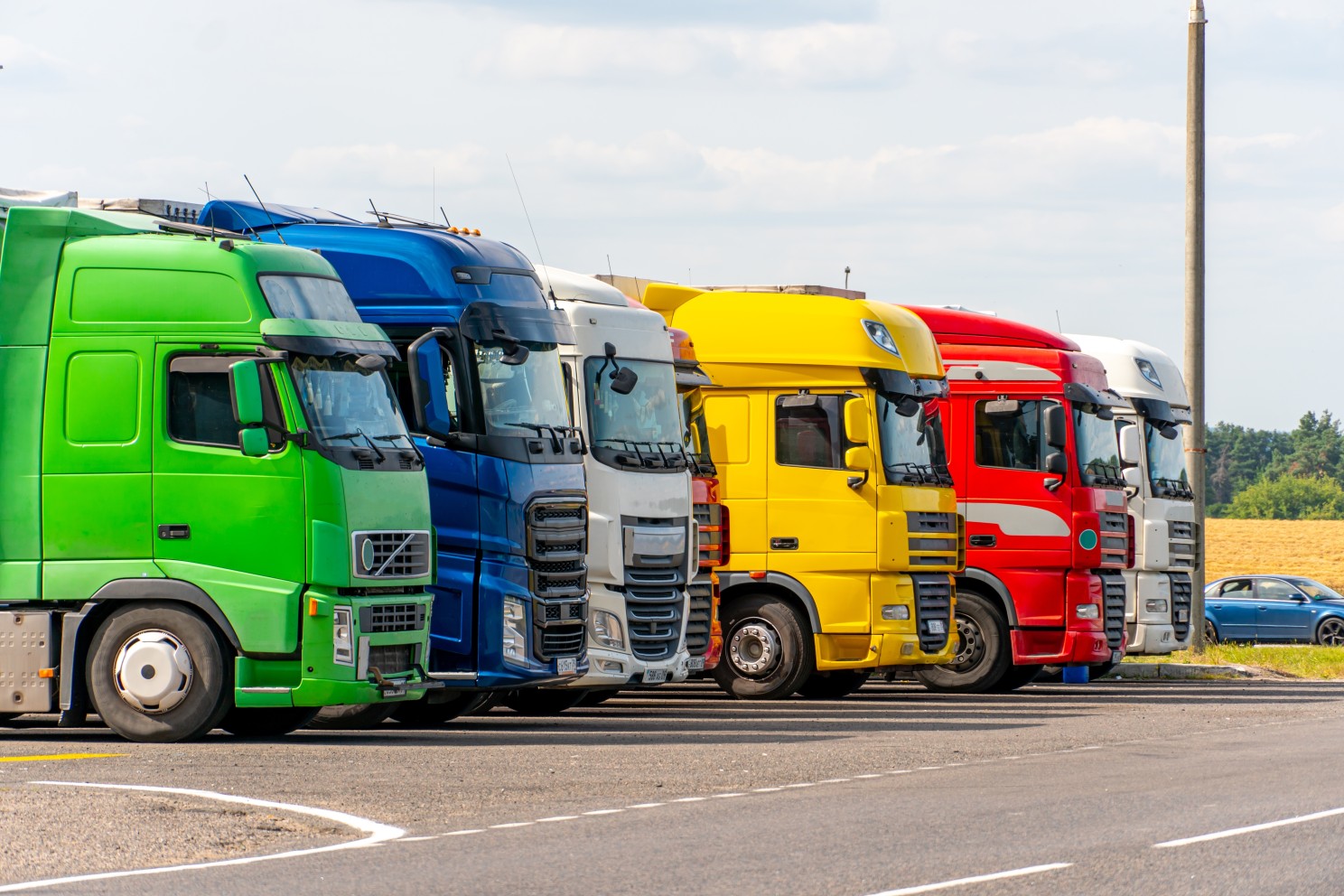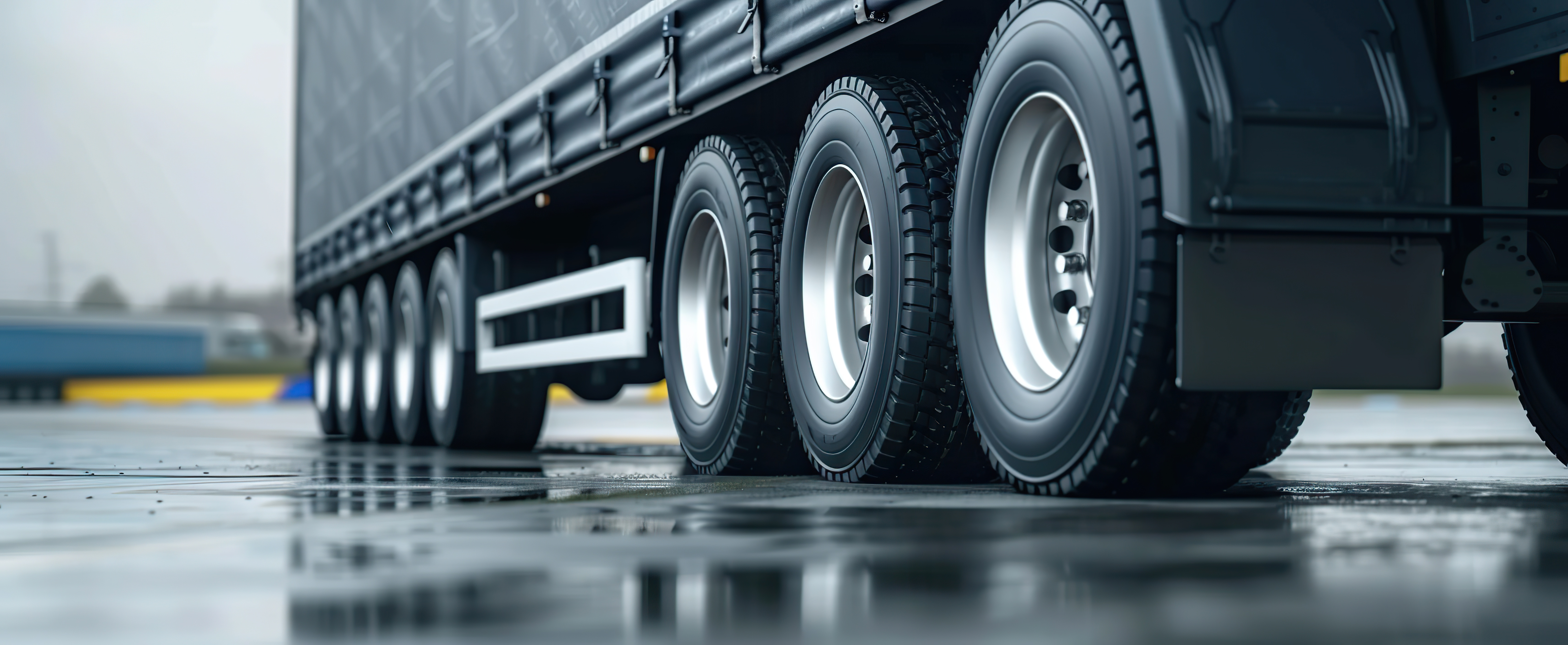
Josh Cousens
O que os gestores de frotas precisam de saber sobre os regulamentos de transportes da UE
Criado: 07/04/2025
•
Atualizado: 07/04/2025
Sabemos que os gestores de frotas estão a fazer malabarismos com a falta de condutores, o aumento dos custos de combustível e a tarefa considerável de manter os camiões em conformidade. Agora, junte-lhe uma complexa rede de regulamentos de transportes da UE que evoluem mais rapidamente do que a quilometragem da sua frota. Isto soa-lhe familiar?
Bem-vindo à linha da frente do transporte europeu de mercadorias.
Desde as regras relativas às horas de serviço até aos objectivos de emissões, o panorama regulamentar da UE é um desafio e tanto, mas também um roteiro para um transporte mais inovador, mais seguro e mais sustentável.
Quer esteja a gerir uma empresa familiar na Polónia ou a supervisionar operações pan-europeias a partir do Reino Unido, manter-se à frente das regras não é opcional. É uma questão de sobrevivência.
Porque é que os gestores de frotas devem estar atentos
A regulamentação da UE em matéria de transportes afecta quase todos os aspectos da sua atividade: horas de trabalho dos condutores, emissões dos veículos, controlos nas fronteiras, estacionamento e conformidade digital. Ficar para trás pode significar coimas, atrasos ou perdas de contratos.
A boa notícia é que, se compreender o sistema, pode utilizá-lo em seu benefício. Conhecer as regras torna mais fácil fazer com que a sua empresa se destaque da concorrência.

Principais regulamentos da UE em matéria de transportes que todos os gestores de frotas devem conhecer
1. Horário de trabalho dos condutores e legislação relativa ao tacógrafo
A União Europeia tem regras rigorosas sobre o tempo que os condutores podem trabalhar na estrada. Os gestores de frotas devem assegurar que os seus condutores:
- Não conduzir mais de 9 horas por dia (extensível a 10 horas duas vezes por semana)
- Não exceder 56 horas de condução numa semana
- Fazer uma pausa de 45 minutos após 4,5 horas de condução.
Os tacógrafos digitais devem ser instalados em todos os veículos relevantes para controlar a conformidade. O incumprimento desta obrigação é uma das razões mais comuns para a aplicação de sanções.
Para mais informações sobre [regras do tacógrafo aqui] (https://snapacc.com/newsroom/tachograph-rules-made-easy/).
2. Pacote da mobilidade
Este vasto conjunto de reformas está a transformar o transporte transfronteiriço de mercadorias. As principais alterações incluem:
- Regresso regular dos veículos ao país de origem de 8 em 8 semanas
- Igualdade de remuneração para os condutores que exercem a sua atividade nos países da UE de acolhimento
- Novas regras sobre cabotagem e destacamento de condutores.
Trata-se de um fator de mudança para os gestores de frotas que supervisionam o transporte internacional.
Saiba mais sobre o[ pacote de mobilidade aqui] (https://transport.ec.europa.eu/transport-modes/road/mobility-package-i_en).
3. Emissões e regras ambientais
As zonas de baixas emissões (LEZ), os objectivos de CO2 para os novos camiões e os incentivos aos veículos eléctricos são apenas o começo.
Os gestores de frotas têm de cumprir as normas de emissões Euro 7. Estas incluem:
- Saber onde estão localizadas as zonas de baixas emissões (especialmente em cidades como Paris, Berlim e Milão)
- Investir em tecnologias mais limpas ou reequipar veículos mais antigos
- Monitorizar os dados relativos às emissões para efeitos de apresentação de relatórios.
4. Tacógrafos inteligentes e conformidade digital
A União Europeia está a avançar para uma aplicação automatizada:
- Os tacógrafos inteligentes são obrigatórios em todos os veículos novos
- Estes dispositivos transmitem dados de GPS e podem ser verificados remotamente pelas autoridades
- As ferramentas digitais de gestão de frotas já não são um luxo - são a sua rede de segurança jurídica.
5. Regras de estacionamento e de repouso transfronteiriças
Os gestores de frotas devem planear os locais de estacionamento e de repouso em conformidade com as regras de bem-estar dos condutores:
- Os condutores devem passar períodos de descanso semanais fora da cabina
- O estacionamento seguro de camiões está a tornar-se obrigatório em algumas regiões.

Perguntas mais frequentes
Quais são as regras da UE em matéria de horas de condução para os condutores de veículos pesados?
Os gestores de frotas devem garantir que os condutores cumprem os limites regulamentados pela UE: 9 horas por dia (com flexibilidade), pausas adequadas e limites máximos de condução semanal/mensal.
O que é o Pacote de Mobilidade da UE para os camiões?
A reforma do Pacote de Mobilidade garante uma concorrência leal, o bem-estar dos condutores e uma supervisão adequada no transporte internacional de mercadorias e no transporte rodoviário - com regras mais rigorosas em matéria de cabotagem, remuneração e devoluções.
O que acontece se infringir as regras do tacógrafo?
Os condutores que infringem as regras do tacógrafo podem esperar multas, potenciais proibições e uma reputação prejudicada para a empresa. O incumprimento não é apenas um risco - é dispendioso.
Os países da UE exigem normas de emissão para camiões?
Sim. A maioria dos principais países e cidades europeus tem políticas e objectivos de emissões rigorosos para reduzir a poluição atmosférica dos veículos, pelo que os operadores de frotas têm de planear com antecedência.
O panorama geral
Os gestores de frotas não gerem apenas camiões; gerem também o risco, a conformidade e a reputação da sua empresa. Compreender a regulamentação da UE em matéria de transportes é a diferença entre prosperar no sector dos transportes modernos e ficar para trás.
A SNAP torna esse trabalho mais fácil de gerir. Desde pagamentos digitais a soluções de estacionamento de camiões e de conformidade, apoiamos as pessoas que mantêm a Europa em movimento.
Os regulamentos estão a tornar-se mais rigorosos, mas os gestores de frotas competentes? Eles também estão a apertar o passo.
Preparado para cumprir as normas, manter-se competitivo e impulsionar o futuro do transporte de mercadorias? [Desbloqueie o SNAP hoje mesmo] (https://register.snapacc.com/en).


